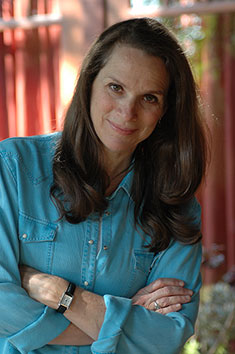In the following months, with tape recorder in hand, I periodically visited them and, on occasion, telephoned. When I stayed with Tessie, we were roommates, and her snoring drove me wild; Pearlie and I stole time together over tea and bopkas . I found myself frantically jotting down notes about the details of their lives, as if the act of remembering would allow me to hold on to them longer. Then I resisted writing their stories with every journalistic bone in my body: How could I truthfully distill the lives I most wanted to extol ?
At first glance, Tessie and Pearlie seem as different as two women could be. Tessie can be secretive and has few close friends, though she is acidly funny; Pearlie, who tosses her head back and lets go a piercing cackle when she laughs, is vocal and has a range of acquaintances and relationships. Pearlie is ribald, Tessie is circumspect. Tessie boycotted my wedding 17 years ago when I married my husband, Brock, who is not Jewish; Pearlie not only came to our wedding, just a month after her husband died, but she also joyously danced there, a la Isadora Duncan, in pink chiffon. Tessie strictly observes Jewish rituals, keeping kosher and attending shul as often as possible; Pearlie, who prays by writing letters to her deceased son and husband, believes that religion resides in the heart.
On closer inspection, though, it quickly becomes clear that my grandmothers face the same predicament: Both women, in a sense, have become invisible. As with the matriarchs of the Old Testament, you have to read between the lines to understand them--or just to find them. To be an old woman in American culture is to be cast off, dismissed as daft. Jewish mothers, in particular, have become cultural icons and the butt of countless jokes. Yet, these public portrayals mask a deeper truth that is no secret: Women outlive men. Thus, their undisputed power resides in their longevity, as keepers of the family legacy. Tessie and Pearlie stand as symbols that sometimes there are men around and sometimes not, but life goes on pretty much the same either way.
They tell stories about their past with the narrative panache of Isaac Bashevis Singer. Are their stories true? Some go back so far, to the middle of the 19th Century, that they surely improve in the retelling. But accuracy isn't the point, really. What matters to me, anyway, is that I find the girl in the woman before me, still alive with possibility.
What follows is my ode to bubbe hood, a patchwork of interviews, recipes and kitchen-table advice: Pearlie's wisdom and Tessie's tsuris ("worries").
"You know what's tsuris ?" Tessie asks, casting one of her deadpan looks. "Two Jews were sitting on the train and they were talking tsuris . And the Irishman was holding onto the strap in the train. And he hears them talking tsuris , tsuris , tsuris . He says, 'For God's sake, if you have a sore ass, why don't you get up and give me a seat?' "
Mother's Day, May 8. 6:30 a.m. Inside Tessie's apartment.
"Come, mamashayna ," she says as soon as she's hugged me hello. "Come eat breakfast."
Bleary-eyed, I've just arrived on the red-eye from Los Angeles to her one-bedroom apartment in Queens. She lives in a six-story brick building, the Winston, in a tree-lined, working-class neighborhood of Briarwood, not far from Forest Hills. In anticipation of my arrival, she's already beaten the eggs for my matzo brei --scrambled eggs with moistened matzo. Wrapped in a plastic bag and covered with a paper towel is her homemade marble cake, my favorite.
At 93, Tessie stands just under five feet, though she once was a couple of inches taller. She wears thick, pink-framed glasses, red lipstick, a flowered housedress and sneakers. Her right hand shakes, her fingers are gnarled from arthritis, her sciatica is a source of constant pain. Still, she manages to have her fingernails painted fire-engine red.
"It's good to live long, but it's not good to get old," she tells me. "You can't do what you want."
She sets a cup of coffee on the place mat. "Do you use sugar or you use your disposition?"
Her apartment, decorated with family photographs from decades ago, is furnished neo-"I Love Lucy," with most of the lamps, tables and chairs from the 1950s. But they've held up for a reason. "This is what I learned from my husband Izzy," she says of the grandfather I never met and for whom I was given my Hebrew name. "If you buy, buy good." In the living room, above an overstuffed couch, there hangs a pastoral oil painting of Stevensville in the Catskills. On a side wall, there are two ceramic dancers in frames. Over her bed, too, there are framed prints of Degas dancers.
It's drizzling out. I ask about her arthritis.
"They wouldn't let me alone."
"Who wouldn't let you alone?"



